UK’s 2nd-largest trade union backs anti-Israel boycott movement
Britain's second-largest trade union has declared its support for the pro-Palestine Boycott, Divestment and Sanctions (BDS) movements against the Israeli regime, slamming UK government legislation barring institutions from boycotting products made in occupied territories.
Unite, which represents 1.2 million British workers and is one of 15 trade unions affiliated to the Palestine Solidarity Campaign (PSC), passed three motions supporting BDS at its conference on Friday, demanding that the government abandon the Economic Activity of Public Bodies (Overseas Matters) legislation that bans public bodies from launching their own boycott efforts, explicitly mentioning the Israeli regime and the occupied territories.
The bill “seeks to limit the ability of public bodies to make ethical choices about spending and investment that reflect widespread public support for human rights, climate goals and international law,” the relevant motion said.
The motion further pointed to Unite’s support for BDS campaigns against companies with ties to Israeli occupation of Palestinian territories.
At the conference, the union also pledged to promote the Right to Boycott campaign among its membership, urging workers to sign a petition against the government bill.
“At a moment when the government’s anti-boycott bill seeks to delegitimize the Palestinian call for boycott, divestment and sanctions, the unanimous support of Unite’s members … for motions affirming support for BDS is crucial," PSC Director Ben Jamal declared.
“Unite has made clear that it will continue to stand shoulder to shoulder with the Palestinian people and reject all efforts to delegitimize their struggle for liberation,” he added.
PSC also pointed out that the bill would further “shield companies engaged in human rights abuse or environmental destruction by preventing public bodies from cutting financial ties with them over abusive or illegal actions committed in a foreign state, unless expressly permitted to do so by the government.”
Another motion passed during the conference confirmed the union’s recognition of the Israeli regime as practicing apartheid, and demanded from the British government to abandon its free-trade agreement with the occupying entity.
The last motion passed in the conference concerned the Israeli military’s labeling of six Palestinian civil society and human rights organizations as “terrorist” bodies.
This is a “direct assault in an effort to isolate and restrict human rights defenders,” the conference emphasized, clarifying that the targeted organizations “provide services and support to women, children, farmers and prisoners, and collectively support thousands of Palestinians.”
Unite called on the UK government to reiterate its support for Palestinian civil society, and for the Israeli regime to retract its "spurious" claims.
The BDS movement, which is modeled after the anti-apartheid movement in South Africa, was initiated in 2005 by over 170 Palestinian organizations that were pushing for “various forms of boycott against Israel until it meets its obligations under international law.”
Thousands of volunteers worldwide have since then joined the BDS movement, which calls for people and groups across the world to cut economic, cultural, and academic ties to Tel Aviv, to help promote the Palestinian cause.
The movement has been so successful in causing economic damage to the Tel Aviv regime that pro-Israel groups have labeled it “an existential threat.”
Iran among top nuclear technology countries: AEOI chief
Democrats 'risk losing' election for backing Israeli war on Gaza, Lebanon: US journalist
Protesters remove busts of Israel's first president from Manchester Univ.
VIDEO | Hezbollah drones
US involvement in Israel’s 'regional war' unconstitutional, lawmakers tell Biden
107 years of Balfour Declaration that paved way for extermination of Palestinians
Hezbollah strikes Israeli military base near Tel Aviv
Palestinian media rights group condemns killing of two journalists by Israel


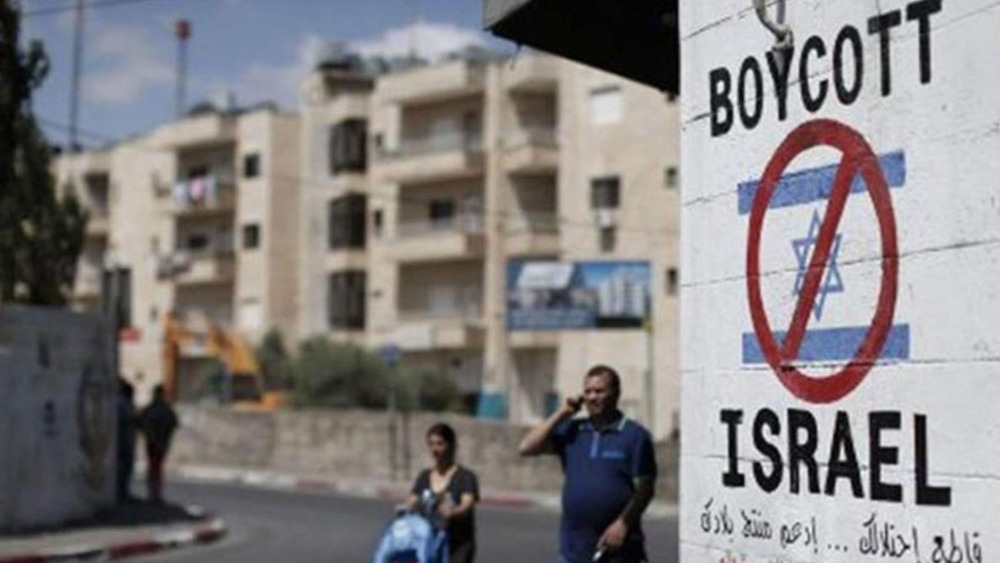
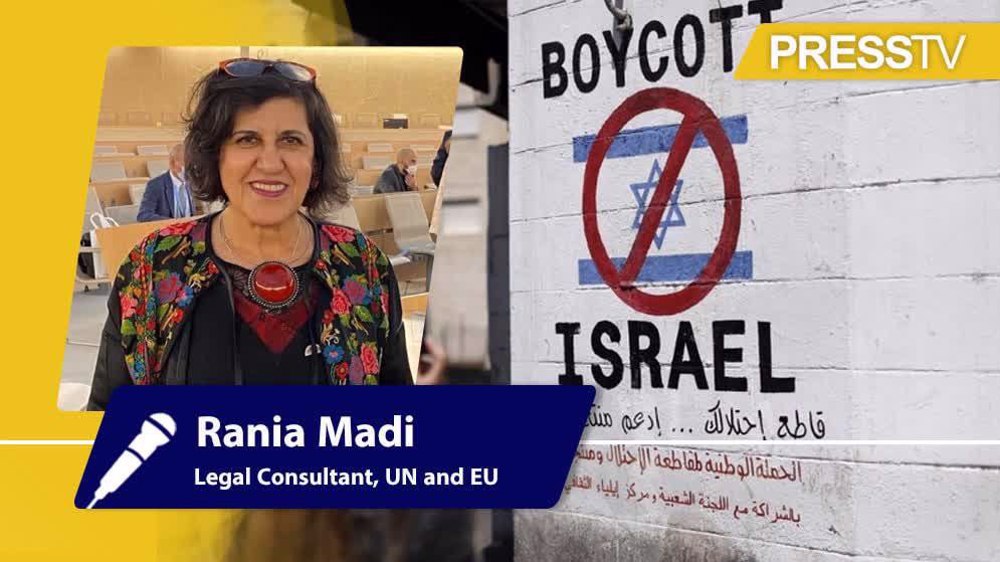
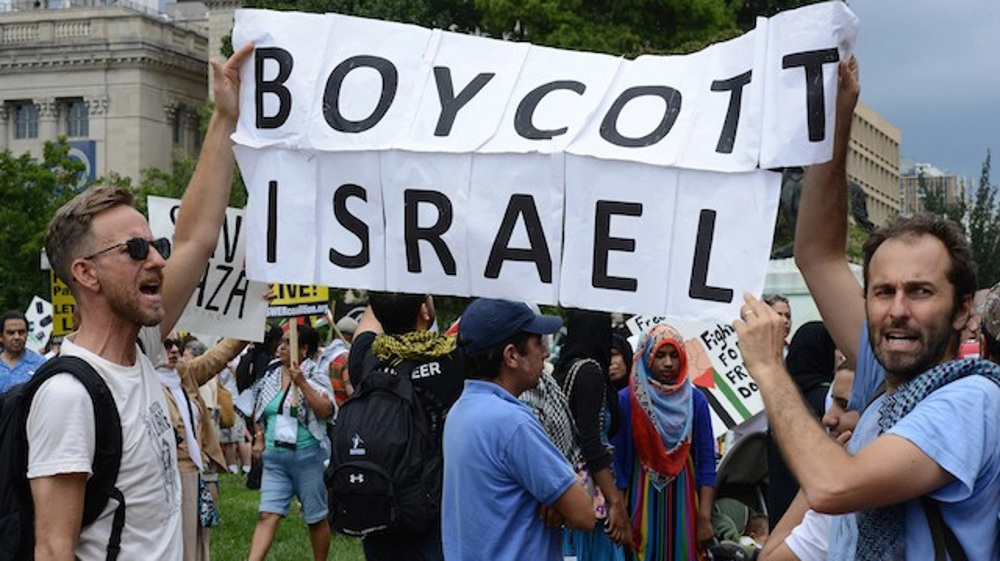

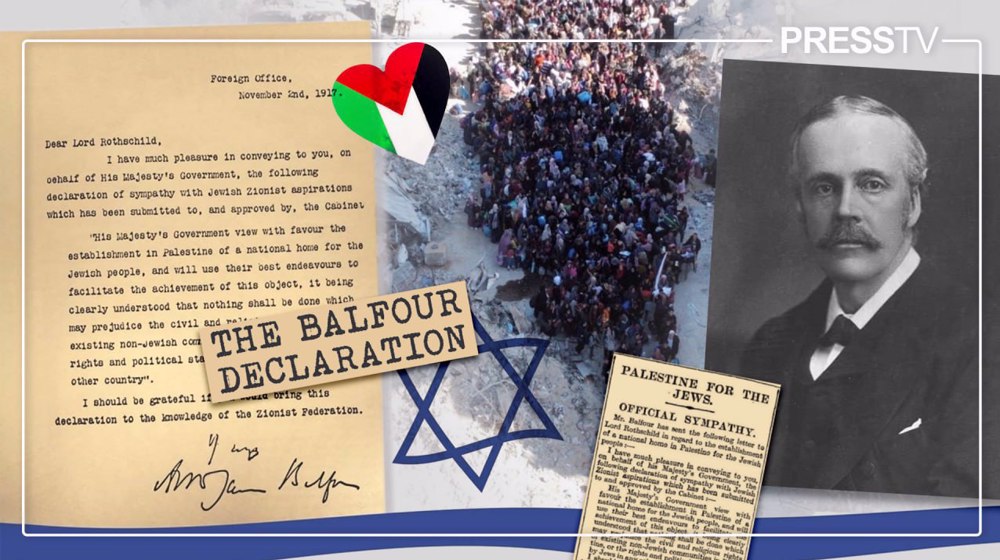




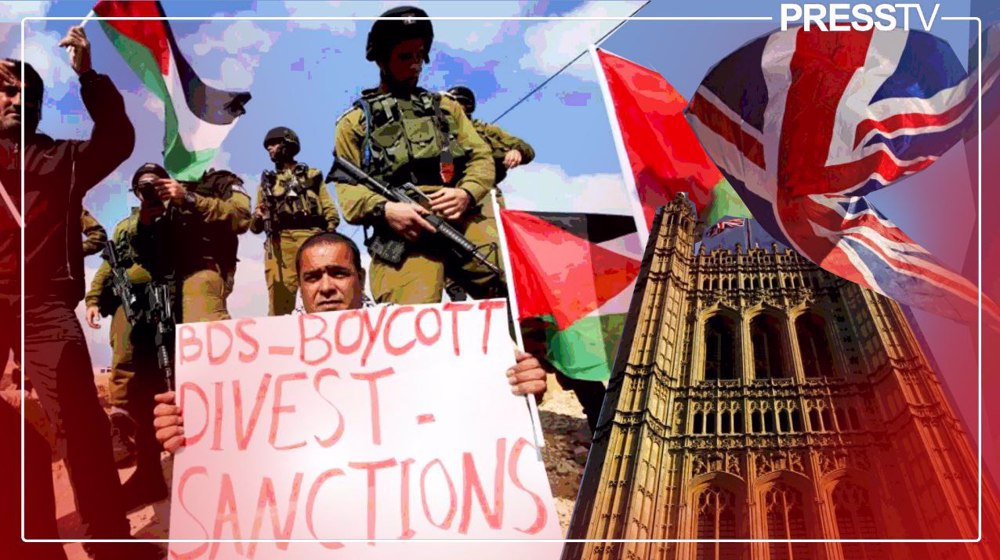
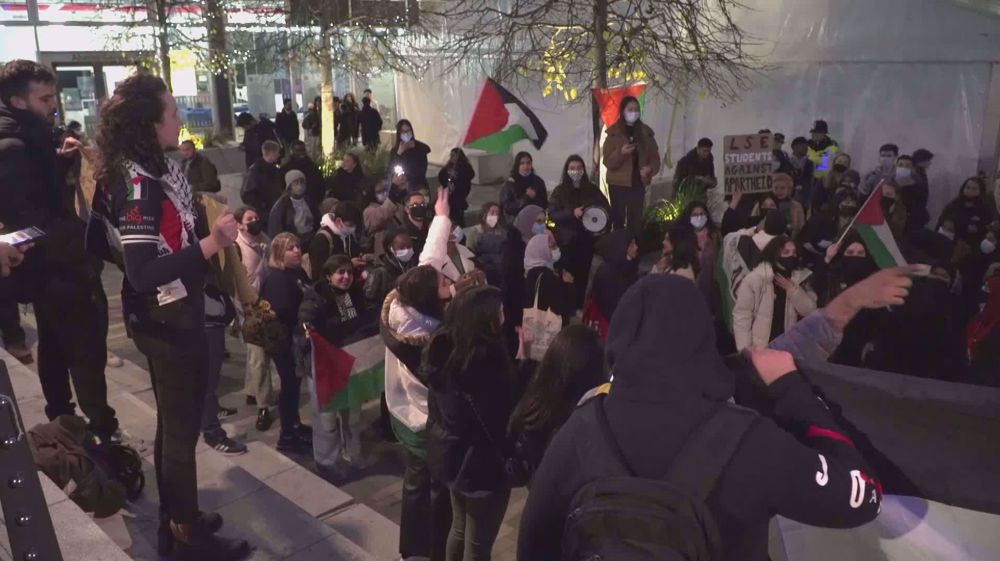
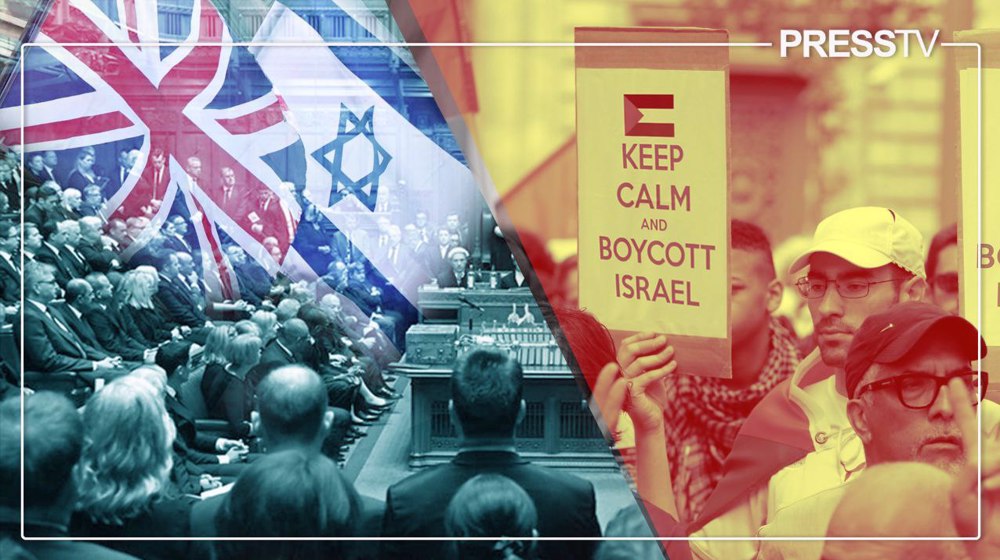

 This makes it easy to access the Press TV website
This makes it easy to access the Press TV website